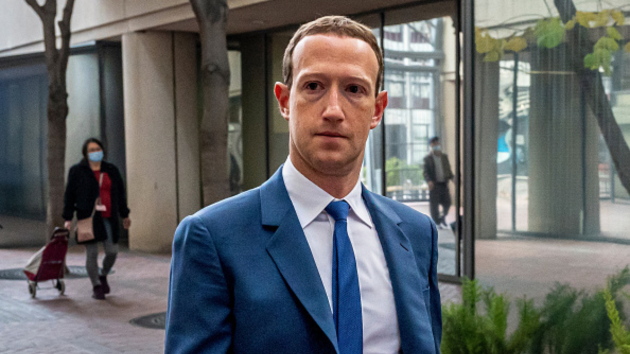Is the banking crisis over? Experts weigh in after First Republic Bank shares plunge
Written by ABC Audio ALL RIGHTS RESERVED on April 29, 2023
(NEW YORK) — Turmoil in the financial system returned this week as shares of First Republic Bank, the nation’s 14th-largest lender, plummeted more than 75%.
The selloff took hold after the bank revealed that depositors had fled en masse last month after the collapse of Silicon Valley Bank, the largest U.S. bank failure since the 2008 financial crisis.
The ongoing distress at First Republic rekindled questions about whether the banking industry has regained solid footing or teeters on the brink of wider failure.
While the financial system remains under stress, experts said, the current unrest is unlikely to pose a systemic risk, since the damage is contained within a relatively narrow group of banks vulnerable to high interest rates and depositor panic.
Still, the ultimate outcome is difficult to predict, in part because the extent of the fallout depends on how depositors respond to the possible failure of additional banks, such as First Republic, some experts said.
Here’s what’s happening in the banking industry right now, and whether the crisis has passed, according to experts:
What is happening in the banking system right now?
Many of the forces behind the Silicon Valley Bank collapse, experts said, continue to put pressure on the banking system: high interest rates, concern among uninsured depositors and the potential for social media chatter that escalates panic.
As the Fed aggressively raised interest rates over the past year, the spike dropped the value of Silicon Valley Bank’s Treasury bonds and mortgage bonds, punching a hole in its balance sheet.
Because Silicon Valley Bank served a relatively concentrated group of tech startups and venture firms, many of whom held uninsured deposits, a disclosure last month of the bank’s financial losses sparked a panic that quickly escalated into an old-fashioned bank run.
First Republic, which specialized in long-term mortgage loans to affluent homebuyers, faced the same exposure to high interest rates and fear among depositors with uninsured deposits, experts said.
“First Republic is basically the same story,” Steven Kelly, a researcher at the Yale Program on Financial Stability, told ABC News.
However, an additional source of pressure arose in the aftermath of the collapse of Silicon Valley Bank: a shift of deposits out of small banks and into large ones, experts said.
Over the week following Silicon Valley Bank’s failure, small banks lost $108 billion in deposits, Federal Reserve data showed.
Meanwhile, deposits to the nation’s 25 biggest banks increased by $120 billion over that week, the data said.
“The deposit flight away from the small- and medium-sized banks means that the funding model for a lot of these banks is going to be under huge pressure,” Huw Roberts, the head of analytics at Quant Insight, told ABC News.
Is the financial system under systemic threat?
The ongoing turmoil is unlikely to threaten the wider banking system because the risk of collapse remains limited to a specific set of banks that failed to adequately protect their balance sheets, experts said.
“SVB was an extreme example. First Republic is an extreme case,” William Chittenden, a professor of finance at Texas State University, told ABC News. “These are banks that played the extremes.”
The fall of Silicon Valley Bank also brought immense stress upon the 29th-largest U.S. bank, Signature Bank, which ultimately collapsed.
“While big, these banks are not representative of where most people bank,” Kelly said. “It’s not a problem that plagues the whole system.”
“This is a crisis of some banks,” Kelly added. “It’s not a crisis of banking.”
Roberts, of Quant Insight, echoed the point: “The immediate systemic risk is gone as far as whole banking system being threatened.”
Still, the possible failure of First Republic and other vulnerable banks could set off a panic with implications that are nearly impossible to predict, some experts said.
At the end of last year, U.S. banks were sitting on $620 billion in unrealized losses, or holdings that have fallen in price but have yet to be sold, the Federal Deposit Insurance Corporation found.
“Standing alone, First Republic isn’t presenting a systemic risk,” Joe Lynyak, a partner at the international law firm Dorsey & Whitney and an expert on bank failures, told ABC News. “But if it creates a chain reaction of other banks with the public reacting the same way, you could end up with that.”
“We’re just going to have to wait and see,” he added.
Copyright © 2023, ABC Audio. All rights reserved.






